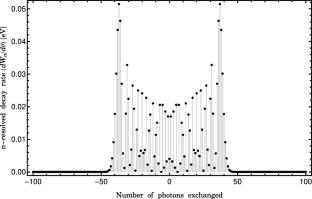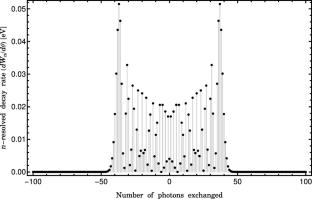Effect of electromagnetic wave propagation direction on decay rates
Abstract
Choosing a specific direction for the propagation of laser field waves often presents a challenge for researchers studying laser-assisted ultrafast quantum processes. They are faced with the question of why exactly a particular direction and not another. This paper resolves the discussion in this issue regarding decay processes. Therefore, we study theoretically the pion decay process in the presence of a circularly polarized laser field propagating along an arbitrary general direction. Using the first Born approximation and the Dirac-Volkov states for charged particles, we derive an analytic expression for the decay rate. Our results show that, when the pion is at rest, the direction of the laser field has no significant effect on the decay rate, justifying the common practice of choosing a convenient direction in previous studies. However, when the pion is in motion, the decay rate is affected by the laser wave vector’s orientation relative to the pion’s momentum. The effect is more pronounced when the wave vector is collinear with the pion’s motion than when it is perpendicular. This study generalizes previous results found for a field with a wave vector along the z-axis in [Phys. Rev. D 102, 073006 (2020)] and provides a theoretical foundation for future investigations into laser-assisted decay processes involving moving particles. The influence of the laser field on the total decay rate has also been analyzed and discussed.



 求助内容:
求助内容: 应助结果提醒方式:
应助结果提醒方式:


